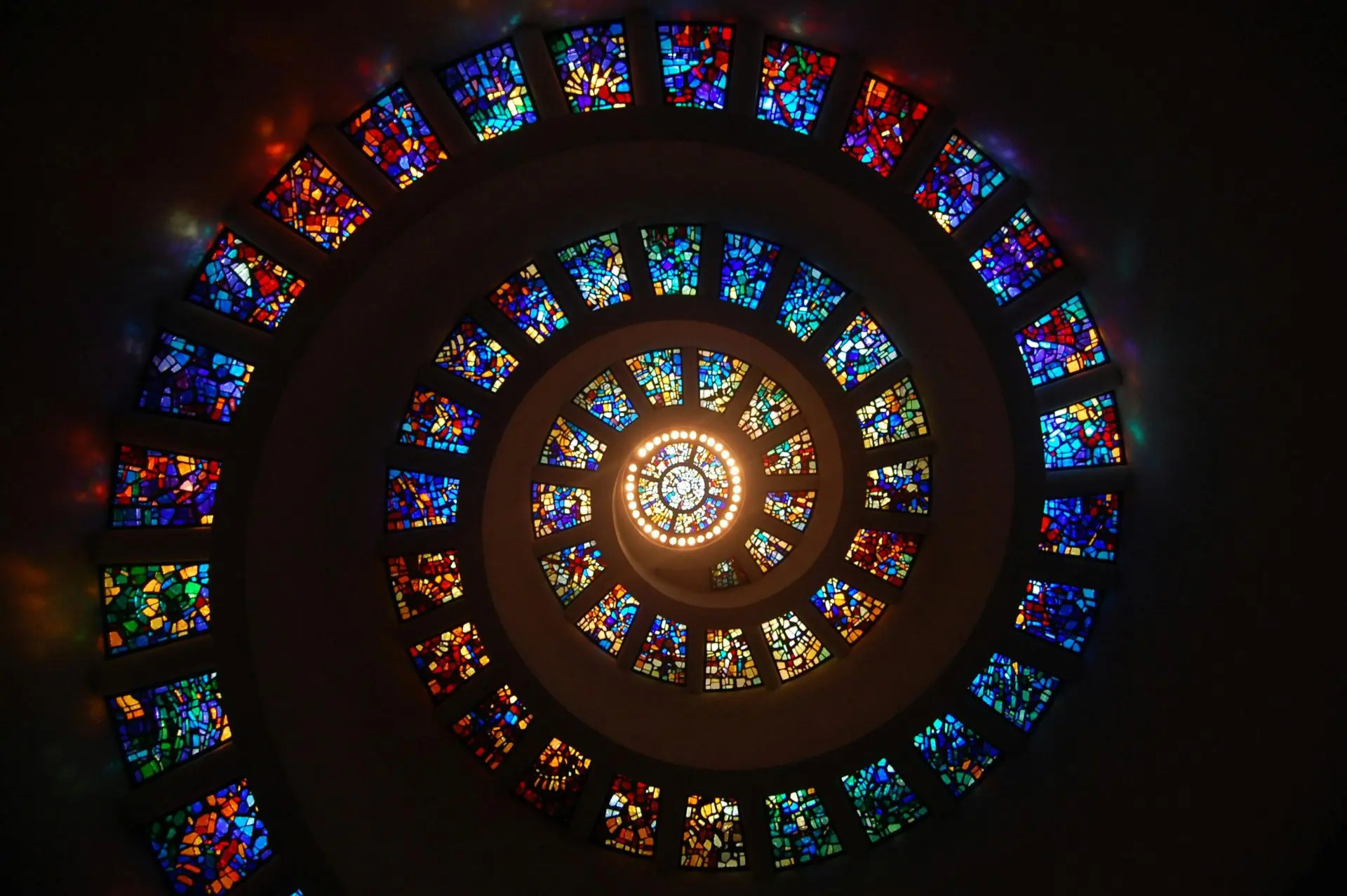Kabbalah: Exploring the Mystical Aspects of Judaism

Looking for more amazing products? Check out our online store and explore our collection here! Happy shopping!
Before diving in, please note: This post is for informational purposes only. If you’d like to know more about how we approach topics, feel free to check out our friendly Disclaimer Page.
Hey there, amazing readers! 
We’re committed to delivering quality posts, and your support (even just sticking around despite the ads) means everything to us. So, bear with us, and thanks for helping us keep the good vibes rolling. Now, on to the fun stuff!
TRANSLATE BUTTON AT THE END OF THE ARTICLE
A Quick Overview
Kabbalah is a mystical tradition within Judaism that seeks to explore the hidden aspects of the universe and the relationship between the finite and the infinite.
It delves into the deeper, spiritual meaning behind the practices and beliefs of Judaism, offering a unique perspective on the nature of existence.
This esoteric branch of Jewish mysticism has a rich history, with roots dating back centuries.
In this article, we will delve into the history, core beliefs, practices, and influence of Kabbalah on Judaism, as well as its presence in contemporary culture.
Introduction to Kabbalah
Kabbalah, which means "to receive" in Hebrew, is a mystical tradition that seeks to uncover the hidden truths of the universe.
It is believed to have been passed down from teacher to student in an oral tradition, with its origins shrouded in mystery.
Kabbalists aim to gain insight into the nature of God, the universe, and the soul through deep contemplation, meditation, and study of mystical texts.
While Kabbalah is deeply rooted in Jewish tradition, it has also attracted followers from diverse spiritual backgrounds seeking spiritual enlightenment and a deeper connection to the divine.
History of Kabbalah
The history of Kabbalah can be traced back to ancient times, with early Jewish mysticism emerging in the Middle Ages.
One of the most famous works of Kabbalistic literature is the Zohar, a mystical commentary on the Torah believed to have been written by Rabbi Shimon bar Yochai in the 2nd century CE.
Over the centuries, Kabbalah has evolved and developed, with different schools of thought and interpretations emerging.
In the 12th and 13th centuries, Kabbalistic teachings became more widespread, influencing Jewish thought and practice.
Core Beliefs in Kabbalah
At the heart of Kabbalah are several core beliefs that shape its mystical teachings.
One fundamental belief is the idea of Ein Sof, or the infinite nature of God, which transcends human understanding.
Kabbalists also believe in the existence of the sefirot, divine attributes or emanations through which God interacts with the world.
These sefirot are represented on the Tree of Life, a central symbol in Kabbalistic teachings.
Kabbalah also emphasizes the importance of spiritual growth, self-awareness, and the pursuit of enlightenment through meditation and contemplation.
The Tree of Life
The Tree of Life is a central symbol in Kabbalistic teachings, representing the sefirot and the interconnectedness of the divine attributes.
It consists of ten sefirot, each representing a different aspect of God’s emanations and the spiritual realms.
The Tree of Life serves as a map for spiritual growth and self-discovery, guiding practitioners on their journey towards enlightenment and connection with the divine.
Each sefirah corresponds to a specific divine attribute, such as wisdom, understanding, or compassion, offering insights into the nature of God and the universe.
Study and Practice in Kabbalah
Studying and practicing Kabbalah involves delving into mystical texts, engaging in rituals, and cultivating spiritual awareness.
Kabbalists often engage in meditation, prayer, and contemplation to deepen their connection to the divine and unlock hidden truths.
Study of the Zohar and other Kabbalistic texts is also central to understanding the mystical teachings of Kabbalah.
By immersing themselves in these texts and practices, practitioners seek to transform their consciousness and achieve spiritual enlightenment.
Mystical Texts in Kabbalah
Mystical texts play a crucial role in Kabbalistic teachings, providing insights into the nature of God, the universe, and the soul.
The Zohar, a central Kabbalistic text, is believed to contain hidden meanings and esoteric wisdom that can only be unlocked through deep study and contemplation.
Other important texts in Kabbalah include the Sefer Yetzirah, the Bahir, and the writings of famous Kabbalists such as Isaac Luria and Moses Cordovero.
These texts serve as a guide for practitioners seeking to deepen their understanding of the mystical aspects of Judaism.
Kabbalistic Symbols and Rituals
Kabbalah is rich in symbolism, with each symbol holding deep spiritual significance.
Understand the Powerful Law of Karma and Its Impact – Explore Here!
Symbols such as the Tree of Life, the sefirot, and the Hebrew alphabet are used to convey complex mystical concepts and teachings.
Rituals in Kabbalah often involve meditation, visualization, and recitation of sacred texts to create a sacred space for spiritual growth and connection to the divine.
The use of symbols and rituals in Kabbalah serves to deepen practitioners’ understanding of the mystical teachings and help them navigate the spiritual realms.
Influence of Kabbalah on Judaism
Kabbalah has had a significant influence on Jewish thought, practice, and spirituality throughout history.
Its mystical teachings have shaped the way many Jews understand the nature of God, the universe, and the soul.
Kabbalistic ideas and symbols have been integrated into Jewish rituals, prayers, and mystical traditions, enriching the spiritual lives of many practitioners.
While Kabbalah has sometimes been met with skepticism and controversy within the Jewish community, its influence on Judaism cannot be denied.
Contemporary Kabbalah
In contemporary times, Kabbalah has experienced a resurgence in popularity, attracting followers from diverse spiritual backgrounds seeking spiritual enlightenment and personal growth.
Kabbalah study centers and organizations offer classes, workshops, and resources for those interested in delving into the mystical teachings of Judaism.
Contemporary Kabbalah has also been influenced by New Age spirituality and popular culture, reaching a wider audience through books, films, and online platforms.
Kabbalah and Popular Culture
Kabbalah’s influence extends beyond the realm of spirituality into popular culture, where its symbols, teachings, and practices have been featured in films, music, and fashion.
Celebrities and artists have embraced Kabbalah as a source of spiritual inspiration and personal growth, bringing awareness to this ancient mystical tradition.
While some critics have questioned the authenticity of Kabbalah’s portrayal in popular culture, its presence in mainstream media has sparked interest and curiosity among a new generation of seekers.
Criticisms of Kabbalah
Despite its enduring appeal, Kabbalah has faced criticism and skepticism from both within and outside the Jewish community.
Some critics argue that Kabbalah’s esoteric teachings are too complex and obscure for the average practitioner to understand, leading to misunderstandings and misinterpretations.
Others question the commercialization of Kabbalah in contemporary times, with some organizations charging exorbitant fees for classes and resources.
However, proponents of Kabbalah defend its mystical teachings as a valuable source of spiritual insight and personal growth.
Conclusion: Impact of Kabbalah on Judaism
In conclusion, Kabbalah has had a profound impact on Judaism, shaping the way many Jews understand and practice their faith.
Its mystical teachings offer a unique perspective on the nature of God, the universe, and the soul, inviting practitioners to delve into the hidden aspects of existence.
While Kabbalah has faced criticism and controversy, its enduring influence on Jewish thought and spirituality cannot be denied.
As Kabbalah continues to evolve and adapt to contemporary times, its mystical teachings will continue to inspire seekers on their spiritual journey towards enlightenment and connection to the divine.

The Enlightenment Journey is a remarkable collection of writings authored by a distinguished group of experts in the fields of spirituality, new age, and esoteric knowledge.
This anthology features a diverse assembly of well-experienced authors who bring their profound insights and credible perspectives to the forefront.
Each contributor possesses a wealth of knowledge and wisdom, making them authorities in their respective domains.
Together, they offer readers a transformative journey into the realms of spiritual growth, self-discovery, and esoteric enlightenment.
The Enlightenment Journey is a testament to the collective expertise of these luminaries, providing readers with a rich tapestry of ideas and information to illuminate their spiritual path.
Our Diverse Expertise
While our primary focus is on spirituality and esotericism, we are equally passionate about exploring a wide range of other topics and niches 

To ensure we provide the most accurate and valuable insights, we collaborate with trusted experts in their respective domains 
Our blog originally focused on spirituality and metaphysics, but we’ve since expanded to cover a wide range of niches. Don’t worry—we continue to publish a lot of articles on spirituality! Frequently visit our blog to explore our diverse content and stay tuned for more insightful reads.
Hey there, amazing reader! 
Check out our store here and take a peek at some of our featured products below! Thanks for being awesome!












